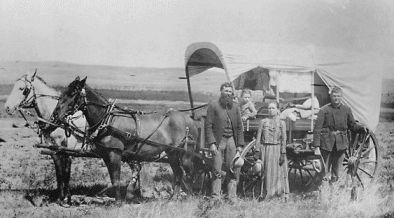Westward Expansion
California Gold Rush
First Transcontinental Railroad
Glossary and Terms
Homestead Act and Land Rush
Louisiana Purchase
Mexican American War
Oregon Trail
Pony Express
Battle of the Alamo
Timeline of Westward Expansion
|
Frontier Life
Cowboys
Daily Life on the Frontier
Log Cabins
People of the West
Daniel Boone
Famous Gunfighters
Sam Houston
Lewis and Clark
Annie Oakley
James K. Polk
Sacagawea
Thomas Jefferson
|
